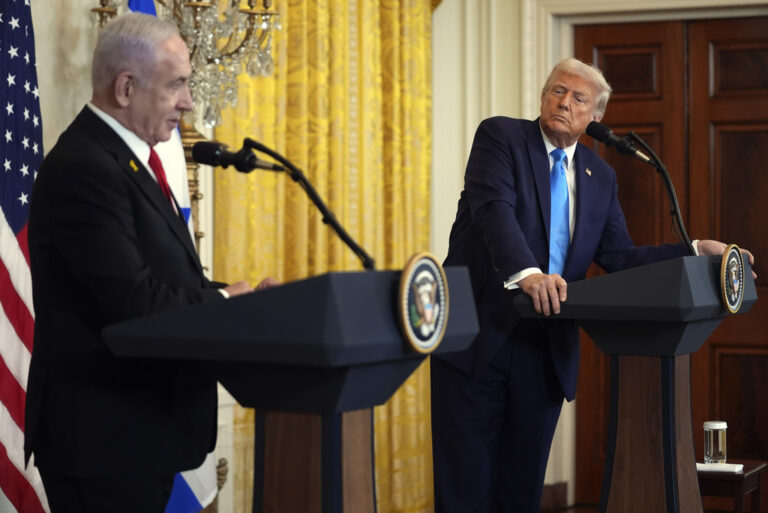The White House plans to give the bipartisan infrastructure negotiations another week to 10 days before assessing next steps, which could include pursuing a Democrats-only approach to pass President Joe Biden’s sweeping jobs and families investment plans.
House Democrats were told about the administration’s latest thinking during a closed session Tuesday. White House counselor Steve Ricchetti relayed the timeline to lawmakers as talks have been underway with a group of 10 senators devising a nearly $1 trillion proposal. The White House insisted later he did not set a deadline for the bipartisan talks.
“We certainly have a foundation to build on top of our jobs plan in its really complete or more complete form, and we’ll see where we’re going to go after a week or 10 days more dialogue and negotiation,” Ricchetti said to House Democrats, according to a partial transcript obtained by The Associated Press.
The updated timeline comes as Biden is overseas but his top legislative priority is teetering in Congress. The president and the Democratic leaders of the House and Senate have been engaged in a two-track strategy — reaching for a bipartisan deal with Republicans but also setting the stage for a potential go-it-alone strategy in case talks fail.
The House Budget Committee Chairman Rep. John Yarmuth, D-Ky., said the plan is, if bipartisan talks falter, “full steam ahead” for considering a package as soon as July under special reconciliation rules that would enable majority passage without the need for Republican votes.
The package being prepared by the House Budget Committee would include both the American Jobs Plan and the American Families Plan. These are Biden’s ambitious proposals to build not just roads and highways, but also the so-called human infrastructure of child care, veterans care and education facilities.
“The White House made it clear to us that we should be prepared to proceed on two tracks,” said Rep. Hakeem Jeffries, the chairman of the House Democratic Caucus. “We’re prepared to do what is necessary to get the American Jobs Plan over the finish line.”
A bipartisan group of 10 senators has narrowed on a nearly $1 trillion deal of mainly road, highway and other traditional infrastructure projects, but without the family-related investments in child care centers and other facilities that Republicans reject as costly and unnecessary.
On Tuesday, the Republicans in the bipartisan group were expected to present the proposal to their GOP colleagues at a closed-door Senate lunch.
The White House insisted that Ricchetti was not conveying any deadline for a deal or the bipartisan talks.
“He said that we are certainly going to know where things stand on infrastructure talks generally in the next week to 10 days, and that we can then take stock overall,” said White House deputy press secretary Andrew Bates. “But he did not set a deadline or cutoff.”
The effort by the bipartisan group, five Democrats and five Republicans, has come far in meeting Biden’s initial ideas, but the senators and the president remain far apart over how to pay for the plan.
Biden has proposed raising the corporate tax rate, from 21% to 28%, to pay for infrastructure investments. Under the bipartisan proposal, the projects would be funded by tapping unspent COVID-19 relief funds, increasing the gas tax paid at the pump by linking it to inflation and trying to recoup unpaid income taxes.
But the prospect of raising the gas tax is unpopular with some Democratic lawmakers. Sen. Ron Wyden, the chairman of the Senate Finance Committee, described it as “another hit on working people.”
“To me, their idea that they’re going to raise taxes on working people while letting multinational companies and the most wealthy Americans off the hook is a non-starter,” Wyden said. “I mean, where is the fairness in that?”
(AP)












One Response
White House To Assess Infrastructure 1st course of action:- Reopen that oil pipeline through Pennsylvania, and reinstate all those thousands of jobs.
Until then, stop wasting your time & our time, with any other talk whatsoever, and better still:- Go on a 1 way ticket to your Delaware basement, and don’t ever bother reemerging from there.